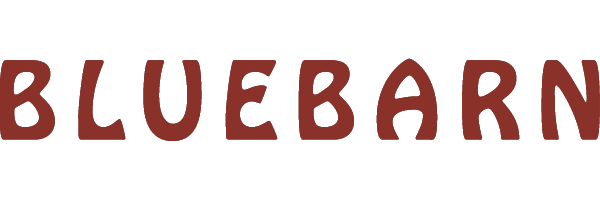Commerce direct
Commerce direct et commerce équitable dans le secteur du café : Explorer les différences et les impacts
Lorsqu'il s'agit de s'approvisionner en café de manière éthique, deux modèles principaux reviennent souvent : le commerce direct et le commerce équitable. Tous deux visent à améliorer la situation des producteurs de café, mais ils diffèrent considérablement en termes d'approche, d'exécution et d'impact.
Le commerce équitable est un système de certification qui garantit aux producteurs de café un prix minimum pour leurs grains, quelles que soient les fluctuations du marché. Il se concentre sur la création d'une stabilité économique, la promotion des droits du travail et le développement des communautés. La certification du commerce équitable exige des agriculteurs qu'ils respectent certaines normes environnementales et sociales, les primes étant versées aux coopératives qui peuvent les investir dans des projets locaux tels que des écoles ou des soins de santé. Toutefois, le système peut s'avérer contraignant. Il implique souvent des frais de certification et le respect de directives strictes, ce qui ne se traduit pas toujours par des augmentations de revenus significatives pour les agriculteurs. En outre, la structure profite principalement aux coopératives, ce qui exclut parfois les petits exploitants qui travaillent de manière indépendante.
Le commerce direct, quant à lui, est un modèle alternatif dans lequel les torréfacteurs ou les acheteurs de café travaillent directement avec les producteurs. Cela permet d'éviter les intermédiaires et de mener des négociations plus transparentes. En supprimant les intermédiaires, les producteurs peuvent souvent obtenir des prix nettement plus élevés pour leur café, en particulier s'ils cultivent des grains de grande qualité. Le commerce direct privilégie les relations plutôt que les certifications, encourageant une collaboration plus étroite entre les producteurs et les acheteurs. Ce modèle prévoit souvent des visites dans les exploitations, un partage des connaissances sur l'amélioration des rendements et de la qualité, et la mise en place de partenariats à long terme.
Les avantages du commerce direct ne se limitent pas à des prix plus élevés. Il incite les agriculteurs à se concentrer sur la qualité, sachant qu'ils seront récompensés directement pour un café exceptionnel. Les acheteurs ont également une meilleure connaissance des défis uniques auxquels les agriculteurs sont confrontés, ce qui favorise les investissements dans des pratiques durables telles que la culture du café à l'ombre, le traitement efficace de l'eau et la culture biologique. Ces pratiques améliorent non seulement les résultats environnementaux, mais aussi la viabilité à long terme de la culture du café.
Dans l'ensemble, le commerce direct a un impact profond sur la durabilité. En établissant des relations directes, les acheteurs aident les producteurs à développer des méthodes agricoles plus résistantes et à garantir de meilleures conditions de travail. Cela crée une boucle de rétroaction positive dans laquelle un café de meilleure qualité obtient de meilleurs prix, ce qui incite les agriculteurs à investir à la fois dans la qualité et la durabilité. Si le commerce équitable constitue un filet de sécurité important pour de nombreuses personnes, le commerce direct offre une approche plus personnalisée et plus efficace pour créer une chaîne d'approvisionnement en café prospère et durable.
Si le commerce équitable a joué un rôle essentiel dans la sensibilisation à l'approvisionnement éthique et dans l'amélioration des moyens de subsistance des agriculteurs, il n'est pas exempt de défauts. L'une des principales limites est le coût et la complexité de la certification. Les agriculteurs ou les coopératives doivent payer pour obtenir la certification et se soumettre à des audits rigoureux, ce qui peut s'avérer prohibitif, en particulier pour les petits exploitants. En outre, l'accent mis sur les coopératives en tant que principaux bénéficiaires exclut souvent les agriculteurs indépendants qui ne font pas partie d'un groupe certifié, ce qui les empêche d'accéder aux avantages du système.
Un autre problème est la dépendance à l'égard du prix minimum. S'il constitue un filet de sécurité en cas de ralentissement du marché, il n'incite pas nécessairement à l'amélioration de la qualité, puisque les producteurs reçoivent le même prix de base, quelle que soit la qualité du café. Cela peut conduire à une marchandisation du café équitable, les producteurs étant récompensés pour leur respect des normes plutôt que pour l'innovation ou l'excellence de leur métier. En outre, les primes versées aux coopératives ne sont pas toujours distribuées directement aux agriculteurs. Ces fonds sont souvent utilisés pour des projets communautaires qui, bien que bénéfiques, ne répondent pas toujours aux besoins économiques immédiats des producteurs individuels.
En résumé, si le commerce équitable a incontestablement amélioré les conditions de vie de nombreux agriculteurs, ses limites structurelles peuvent le rendre moins adaptable aux défis divers et dynamiques de l'industrie mondiale du café. Cela a conduit de nombreuses personnes à explorer des modèles alternatifs tels que le commerce direct, qui met l'accent sur la qualité, la transparence et le soutien individualisé aux agriculteurs, ce qui permet souvent d'obtenir des résultats plus significatifs et plus durables.

